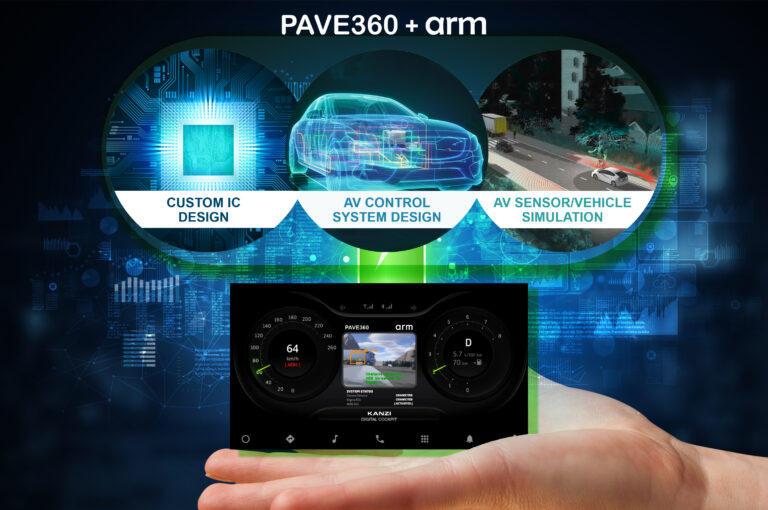Siemens Digital Industries Software has expanded its longstanding relationship with Arm, by adding support for the newly launched Arm Zena Compute Subsystems (CSS) in its Pave360 software, designed for software-defined vehicles (SDV).
Zena CSS, Arm’s first-generation CSS for automotive, is a pre-integrated and validated compute subsystem optimized for performance, power and area. It is designed to accelerate development for the AI-defined vehicle.
“The era of AI-defined vehicles is an opportunity to bring new in-vehicle experiences to life, but it will require a much faster speed of development and deployment,” said Suraj Gajendra, vice president of automotive products and software solutions, automotive line of business, Arm. “With the help of virtual platform solutions like Pave360 from Siemens, Arm is enabling our partners to begin software development on Zena CSS before physical silicon is available, significantly reducing development time for new software solutions.”
“Our work with Arm demonstrates that it’s no longer enough that vehicle development is software defined – the process now needs to be systems-aware with the full vehicle system developed in parallel to help ensure that the entire system meets requirements and will require continuous verification,” said David Fritz, vice president, hybrid and virtual systems, Siemens Digital Industries Software. “Siemens is in a unique position to support this new approach as we enable customers to develop multi-domain (across electronics, hardware and application development) digital twin for validation and integration that encompasses the whole system-on-a-chip (SoC), electronics/electrical (E/E) system and vehicle development flow.”
Siemens’ Pave360 enables developers to create and test software for Zena CSS before the hardware is available. As part of the SOAFEE community, the virtual prototyping environment is used to support the development and testing of SOAFEE blueprints. It provides a way to validate software in a system-level context and model the interactions between hardware and software. This helps address technical issues that arise in software-defined, systems-aware vehicle development.
Pave360, as part of Siemens’ SDV framework, brings together the Innexis software environment, Veloce hardware-assisted verification and validation system, Teamcenter software for product lifecycle, Polarion for application lifecycle management (ALM), and Simcenter Prescan and Simcenter Amesim software for simulation to provide a more integrated approach to software-defined development.
Initial support for Zena CSS, based on Innexis Architecture Native Acceleration (ANA), is now included in Siemens’ Pave360 platform. This enables automotive developers to begin software development ahead of silicon availability. Once hardware becomes available, the development process can transition within the Pave360 digital twin environment to support detailed performance and power analysis using Innexis Developer Pro. Pave360 also supports integration of requirements and verification processes, enabling a system-level digital twin that helps address integration challenges commonly faced in vehicle development.
In related news, Czech truck manufacturer Tatra Trucks has adopted the Siemens Xcelerator portfolio of industry software, including Teamcenter software for Product Lifecycle Management (PLM) and the Mendix low code platform, to help increase production volume and strengthen its ability to manufacture vehicles that meet specific customer requirements. Read the full story


